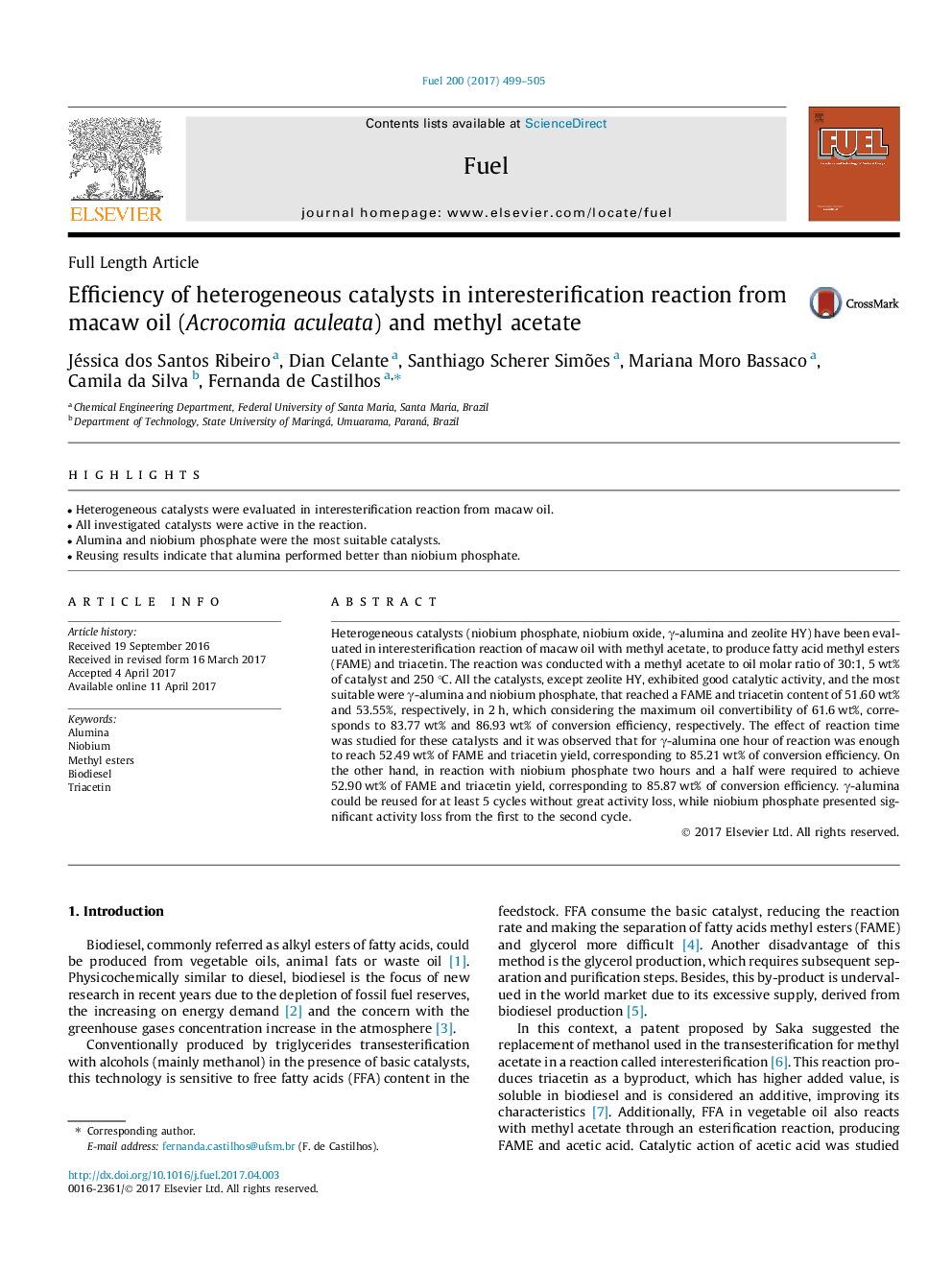| Article ID | Journal | Published Year | Pages | File Type |
|---|---|---|---|---|
| 6473779 | Fuel | 2017 | 7 Pages |
â¢Heterogeneous catalysts were evaluated in interesterification reaction from macaw oil.â¢All investigated catalysts were active in the reaction.â¢Alumina and niobium phosphate were the most suitable catalysts.â¢Reusing results indicate that alumina performed better than niobium phosphate.
Heterogeneous catalysts (niobium phosphate, niobium oxide, γ-alumina and zeolite HY) have been evaluated in interesterification reaction of macaw oil with methyl acetate, to produce fatty acid methyl esters (FAME) and triacetin. The reaction was conducted with a methyl acetate to oil molar ratio of 30:1, 5 wt% of catalyst and 250 °C. All the catalysts, except zeolite HY, exhibited good catalytic activity, and the most suitable were γ-alumina and niobium phosphate, that reached a FAME and triacetin content of 51.60 wt% and 53.55%, respectively, in 2 h, which considering the maximum oil convertibility of 61.6 wt%, corresponds to 83.77 wt% and 86.93 wt% of conversion efficiency, respectively. The effect of reaction time was studied for these catalysts and it was observed that for γ-alumina one hour of reaction was enough to reach 52.49 wt% of FAME and triacetin yield, corresponding to 85.21 wt% of conversion efficiency. On the other hand, in reaction with niobium phosphate two hours and a half were required to achieve 52.90 wt% of FAME and triacetin yield, corresponding to 85.87 wt% of conversion efficiency. γ-alumina could be reused for at least 5 cycles without great activity loss, while niobium phosphate presented significant activity loss from the first to the second cycle.
